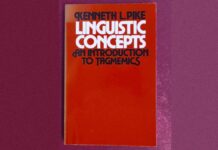An essay is a composition that defends a position or opinion, also called a thesis, that the author has put forth. Not only should an essay demonstrate your overall knowledge of the broader subject, but it should demonstrate your insight into particular aspects of that subject. It also should show that you performed extra and relevant research outside the course material to broaden your knowledge and hone your argument.
Parts
An essay is generally composed of three parts:
- Introduction (hook, background information, and your thesis statement)
- Body (usually, one paragraph for each main idea)
- Conclusion
Introduction
The introductory part of the essay should be brief and effective. Avoid starting abruptly or too philosophically. It should define the title in a precise way. Quotations, statements, dictionary meanings or sayings can be used to introduce the reader to the main idea. Avoid taking sides on an issue in your approach. Also, avoid jargon, cliches and bombastic beginnings.
Body
In the development part of the essay, evaluate all the possible aspects of a problem, topic or issue. Give due importance to each aspect. Relate all the ideas to one another. Connect this part to the promises made in the introduction. Enable equality in the length and size of different paragraphs in this part of the essay. This part should analyse all the different aspects of the problem. Use supporting materials to augment and develop ideas to make the text look comprehensive and authentic. Thus, the main body should automatically lead the reader to the essay’s conclusion.
Conclusion
A conclusion reinforces the idea already illustrated and established in the essay’s main body. Avoid feeble endings. Let the conclusion naturally emerge out of the discussion. Keep the conclusion crisp and cohesive with the other parts of the essay.
Features
A good essay is a result of careful planning and selection of material. A well-written essay is comprehensive in its approach and vision. Though an essay is a reflection of the author’s perspective, it is considered most mature and relevant when written in an objective and detached manner. A good essay usually is well-balanced and not lopsided. Coherence is another feature of a good essay. In a well-written essay, exaggerations and hyperboles have no role to play. The style is, therefore, direct, simple, vigorous and lucid. Like the other components of an essay, its title is also carefully chosen.
Stages in Writing
- Collecting the material
- Defining the scope
- Making an outline
- Making the first draft
- Revising and editing
Elements of Composition
A good essay consists of three elements of composition:
- Content
- Structure
- Mechanics
If the writer deals effectively with each of these, the result will be an essay that expresses the writer’s thinking in an effective, exciting and organised manner.
Content
The content of the essay is the writer’s message. Good essays develop the writer’s main points through thorough discussion and the use of specific details. A good essay includes specific details to support the writer’s explanations.
Structure
The structure of the essay is its organisation. An effective essay is organised with an introduction, main body, and conclusion. The introduction should begin in an interesting way that gains the reader’s attention; it should then lead the reader to the writer’s thesis statement: one sentence that states the writer’s position on what the writer will explain and support in the essay. The main body should consist of several well-developed paragraphs. The conclusion should ‘wrap it up’ by giving the reader a sense of closure. Finally, the writer should use transition words and phrases to move the reader smoothly from one idea to another within a paragraph and from one paragraph to another.
Mechanics
Mechanics refers to the use of language. A good essay is well-written and carefully edited in terms of grammar, punctuation, word usage, and spelling.




























